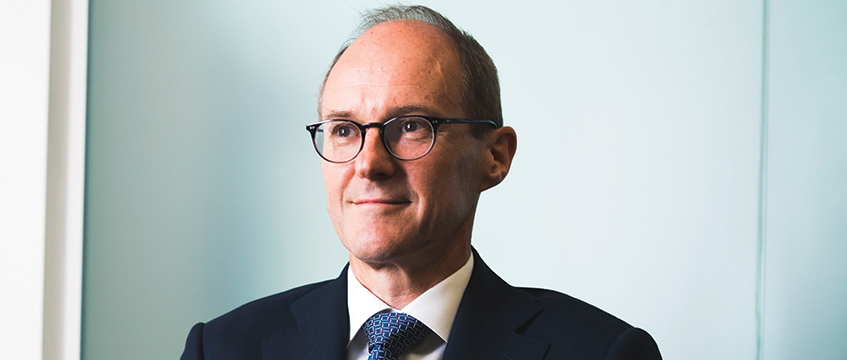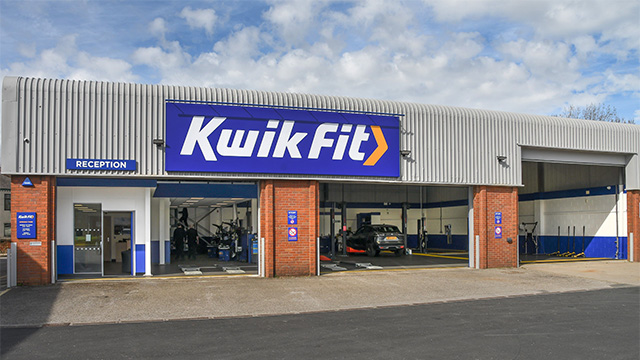SEGRO has set its sights on growing its rent roll by more than 50% in the next three years on the back of asset management initiatives, leasing negotiations and strong occupier demand.
Robust rental growth at SEGRO has helped offset the impact of valuation declines from yield expansion. The industrial REIT posted a 12.5% rise in net rental income to £587m and 6.5% like-for-like rental growth in the year ending 31 December, partially offsetting a 4% write-down in its property portfolio, which stands at nearly £17.8bn. Adjusted NAV per share was down 6.1% year-on-year, at 907p.
Chief executive David Sleath tells EG he expects to increase SEGRO’s passing rent by “capturing embedded reversion, leasing vacant units and developing new space”.
Sleath underlines healthy demand during the year from traditional occupier types such as manufacturers, retail and consumer goods companies and third-party logistics operators, as well as data centres, digital content producers and healthcare and life sciences occupiers.
“In Slough, we’ve got everything from data centres to food producers, to medical instrument manufacturers, to film studios,” Sleath says.
“I get a bit worried when it’s all about one thing. Clearly there was a period in the pandemic and prior to the pandemic when Amazon was taking up 25% or more of the market, which was a little bit of a worrying sign. But now we are seeing a much more diverse pool of demand… which is exactly what we like to see.”
A vintage year for investment?
This year, SEGRO will focus its efforts on building out its landbank, while keeping an eye out for “exceptional” asset or land acquisition opportunities potentially arising from subdued investment market conditions. The landlord expects to invest around £600m in development capex during the year, including £150m of infrastructure relating to its big-box logistics parks in the UK.
“Our priority going into 2024 is to activate the landbank,” says Sleath. “We are creating brand new, state-of-the-art, mostly prelet, highly sustainable buildings, so it’s really hard to find any acquisition opportunity that matches up to that opportunity.”
That said, Sleath believes 2024 could prove to be “a really good vintage” for investment in industrial and logistics, amid broader expectations for a fall in interest rates later this year.
“That’s partly because we see the occupier market continuing to perform well, but we do think that, with most people expecting the next move in interest rates to be downwards, we’ve probably seen the worst of the capital market correction,” he says.
“We should start to see recovery from here. It’s a good time to be putting capital to work, because of the combination of the occupier fundamentals and the monetary conditions easing, compared with where they have been during 2023.”
At the end of 2023, 65% of SEGRO’s portfolio had an EPC rating of B or better. SEGRO highlights that it has identified opportunities to revamp older assets in heavily-populated and congested cities such as London and Paris, where land and buildings are in short supply and rents continue to grow.
Although this will entail periods in which vacancy rates will increase in those submarkets, SEGRO says the related cost will be outweighed by substantial rental uplifts, driven by occupier demand for sustainable locations.
Sleath points to its refurbishment at SEGRO Park Greenford, west London, as an example of that demand. It was certified BREEAM Outstanding during the period, which his team believes is the first industrial building in the world to gain the accolade. It has since gone under offer to an undisclosed occupier at a rent ahead of ERV.
“We have more or less doubled the passing rent,” says Sleath. “It shows the occupiers increasingly want modern, well-located and sustainable space, and they’ll pay for it.”
Powering up data centres
Within its landbank, SEGRO is aiming to capitalise on demand for data centres, which the business believes is set for significant growth. Last year, the business added two data centres to Slough Trading Estate, creating the second largest hub of data centres globally, according to the company.
Sleath says the business has the ability to more than triple the £50m of rental income that it generates from its existing data centre portfolio.
The landlord has sites with the power and planning consents to support a further 24 potential data centre projects in the UK and Europe. Some £100m of potential new headline rent from data centres has been factored into its development pipeline. Sleath says the scope to triple its data centre rent roll does not include opportunities in its existing investment properties.
“It’s a massive opportunity, given the growth of data and the advent of generative AI, there is an awful lot of interest in its potential,” says Sleath. “One of the research houses has said that data centre capacity is going to need to triple in Europe over the next five years. We only need to capture a small part of that, making it a pretty attractive place to deploy capital.”
The company will continue to target disposals around 1% to 2% per annum of its portfolio. SEGRO says it has a “number of transactions under discussion”.
Consolidating rivals
This year, a growing number of listed industrial players could well be joining SEGRO in the ranks of the FTSE 100. Those include LondonMetric, which is buying LXi REIT to create a £4.1bn property giant, and Tritax Big Box REIT, which has tabled an offer to acquire UK Commercial Property REIT, potentially forging a business worth £3.9bn.
Sleath is unfazed by the prospect of increased competition. “Many of the other companies are finding that scale is a challenge, particularly in the listed space,” he says.
“Investors increasingly want specialist vehicles where they focus on one thing and doing that one thing well, but scale matters in terms of being relevant to the investor base and having liquidity. So I can see why a number of other people are looking to consolidate and grow.
“I think we are in a relatively advantageous position, in that we have grown. We have around £20bn of assets under management across the group, so we have the benefits of scale and relevance in all the markets we are operating in.”
Will the rise in dealmaking inspire SEGRO to follow suit? Perhaps, according to Sleath, although the threshold is high.
“Who knows, maybe there’ll be some more acquisition activity to consider this year, but it’s a pretty high bar for us, because we built a really good portfolio,” says Sleath.
“We’ve got a great landbank. To have acquisitions that are additive in terms of the return on capital and quality – it’s a pretty high bar, but it’s certainly an interesting environment. I’m not surprised there’s a bit more M&A going on, and I suspect there’ll be more before the year is out.”
Send feedback to Pui-Guan Man
Follow Estates Gazette











